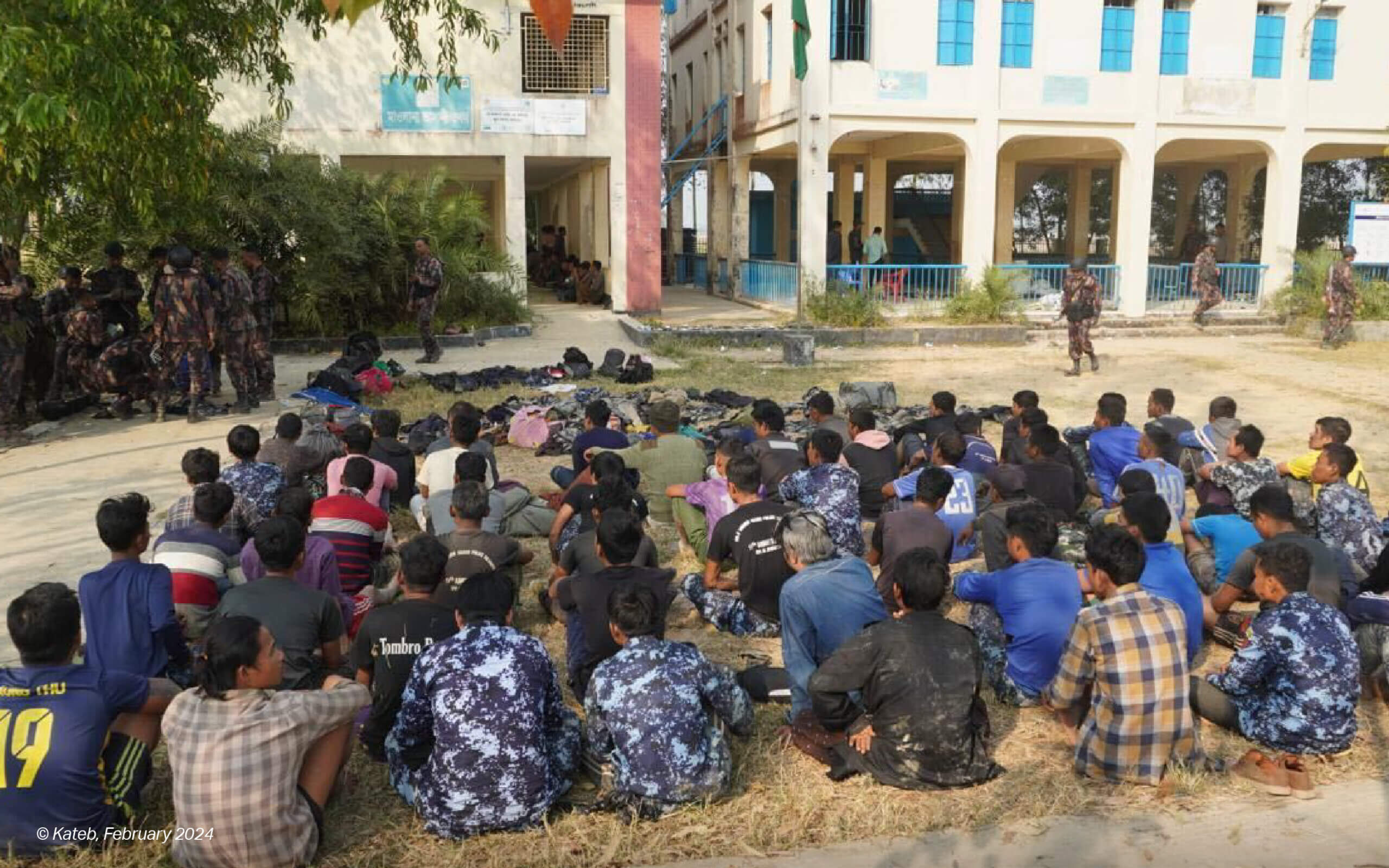Bangladesh: Investigate Fleeing Myanmar Junta-Forces, Coordinate with International Criminal Court


The Government of Bangladesh should investigate newly arrived Myanmar Border Guard Police (BGP) for their possible involvement in atrocity crimes in Myanmar and coordinate with the International Criminal Court’s (ICC) ongoing investigation into crimes against Rohingya people, said Fortify Rights today. In recent days, several hundred Myanmar border guards fled into Bangladesh from clashes with the Arakan Army, an ethnic resistance organization in Rakhine State, Myanmar.
“Bangladesh should avoid any hasty returns of these officers and instead give them any aid and protection they might need and investigate their possible roles in atrocity crimes in Myanmar,” said Matthew Smith, Chief Executive Officer at Fortify Rights. “It would be in the interest of other Myanmar military, police, and border guards to come forward and cooperate with international justice mechanisms.”
On February 6, 2024, Bangladesh’s Border Guard said 264 members of the Myanmar BGP had entered Bangladesh due to ongoing clashes in Myanmar, including more than 100 in a single day and including some with “critical injuries” who are being treated at local hospitals. Mohammed Mizanur Rahman, Bangladesh’s Refugee Relief and Repatriation Commissioner based in Cox’s Bazar, told media that the Myanmar border guards could be accommodated in the nearby district of Bandarban before being sent back to Myanmar.
Bangladesh should not force any border guards back to Myanmar, said Fortify Rights.
An ICC decision on November 14, 2019 authorized the ICC Office of the Prosecutor (OTP) to investigate any crime related to the situation in Myanmar that was allegedly committed, at least in part, on the territory of Bangladesh. The Court has yet to issue arrest warrants related to atrocity crimes against Rohingya. The OTP’s investigation has been underway for approximately four years.
Bangladesh became a state party to the ICC in 2010 and previously coordinated with the Court to bring alleged perpetrators from Myanmar to justice. In September 2020, two Myanmar military soldiers — Army Privates Myo Win Tun and Zaw Naing Tun — appeared on the Bangladesh-Myanmar border, requesting protection from Bangladesh authorities. As a state party to the Rome Statute, Dhaka notified the ICC of the presence of the two former soldiers, who confessed to their involvement in massacres, rape, and other crimes against Rohingya in Myanmar. The soldiers were transferred to The Hague and are the first-ever perpetrators from Myanmar to be in the hands of the ICC.
The Bangladesh authorities should also coordinate and cooperate with the International Independent Mechanism for Myanmar (IIMM) in the collection of evidence of international crimes in Myanmar, said Fortify Rights. The U.N. Human Rights Council created the IIMM in 2019 to collect and preserve evidence of international crimes in Myanmar for future prosecutions.
In 2016 and 2017, the Myanmar military led genocidal attacks on Rohingya people in Rakhine State that razed hundreds of villages, killed, raped, and tortured untold numbers, and forced more than 700,000 people into Bangladesh. Fortify Rights, the U.S. Government, a U.N.-appointed Fact-Finding Mission, Rohingya-led organizations, and others have found that the attacks constituted genocide.
“The Bangladesh government has consistently done the right thing in helping to advance international justice for atrocity crimes in Myanmar, and we’re hopeful the authorities will continue down that track in this situation,” said Matthew Smith. “These border guards might have information that could help hold perpetrators accountable for the Rohingya genocide and other crimes unfolding in Myanmar, and they should be properly investigated.”

